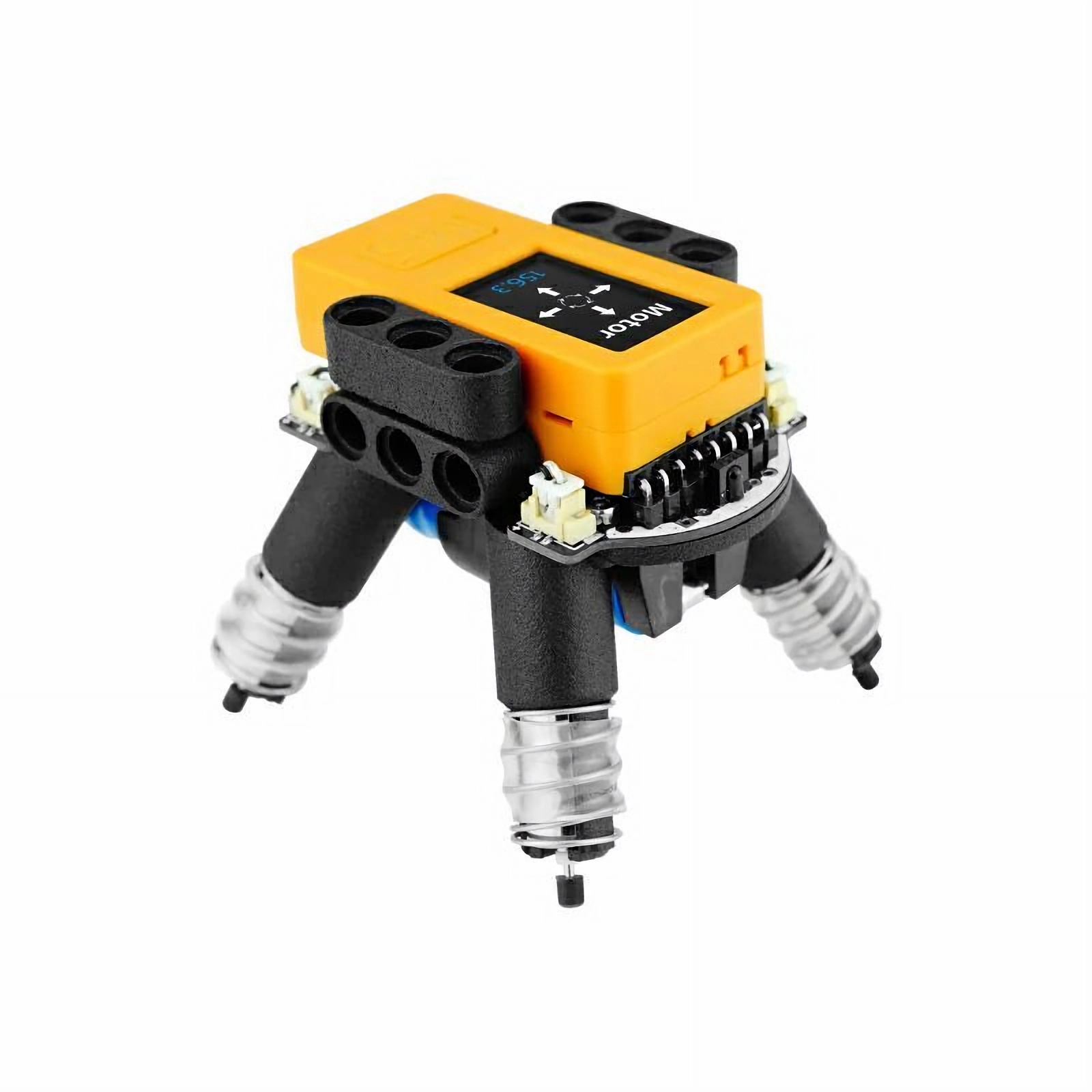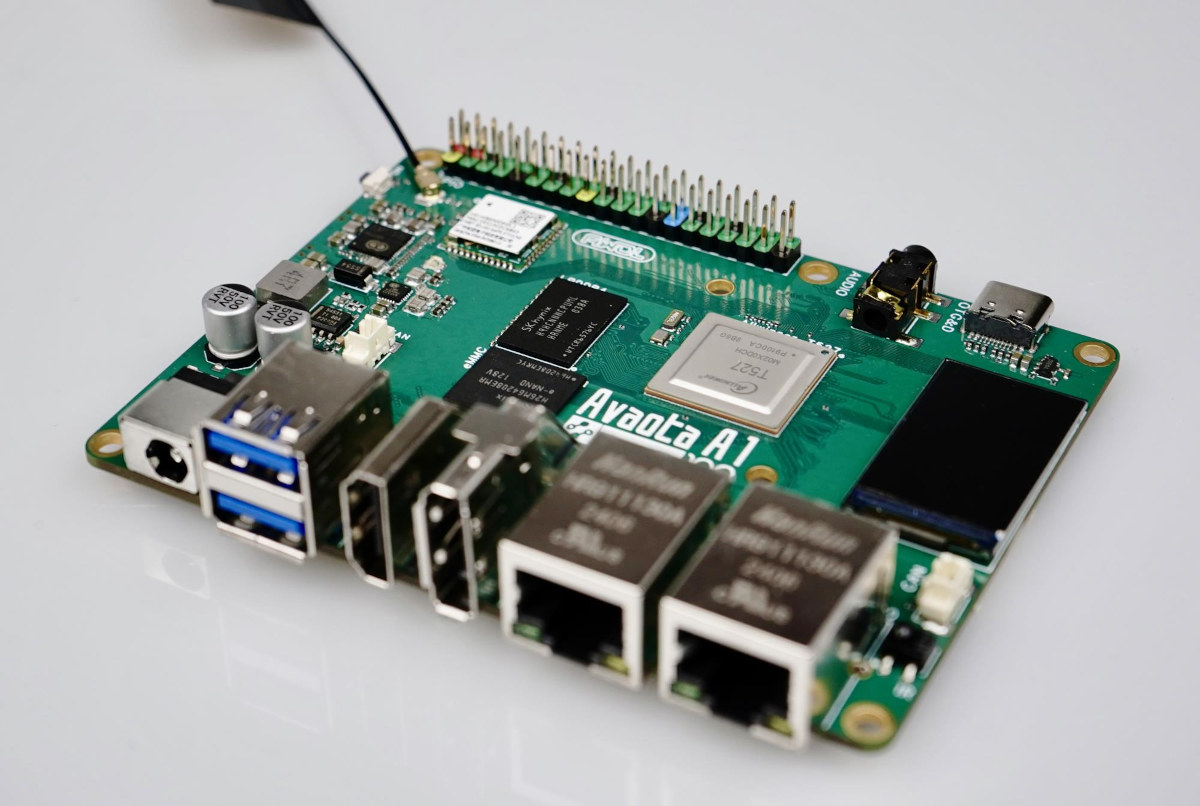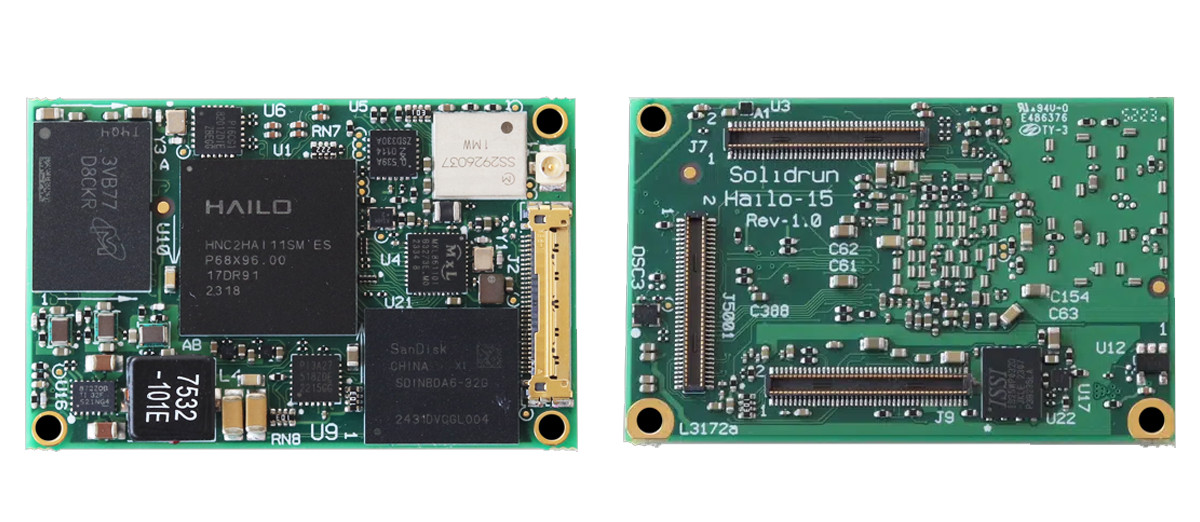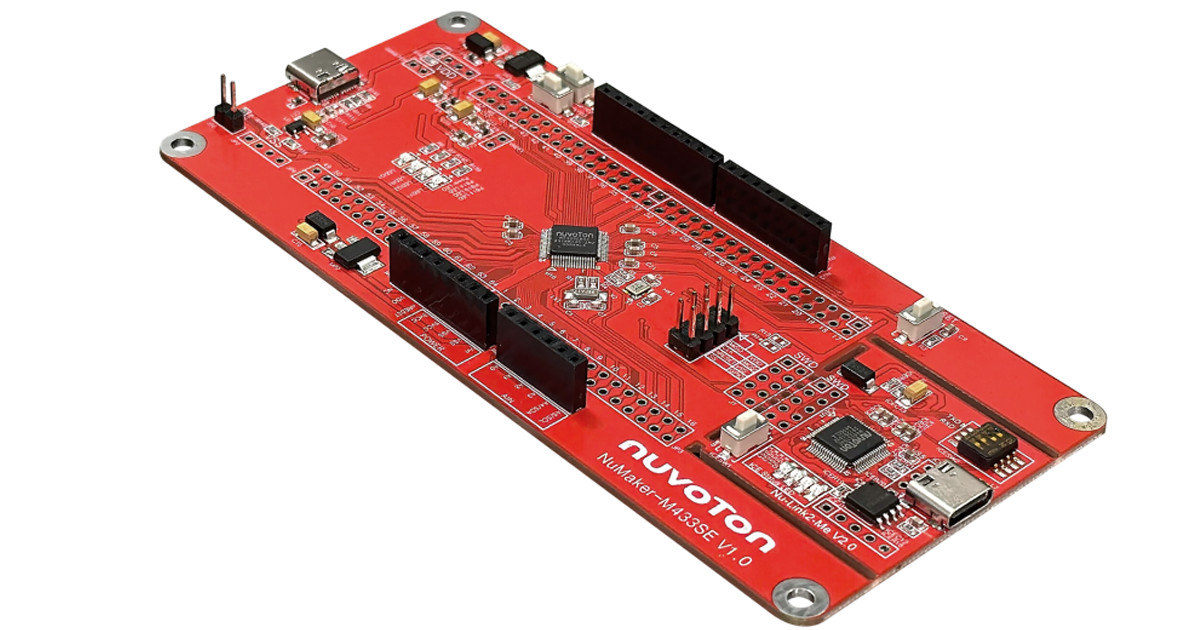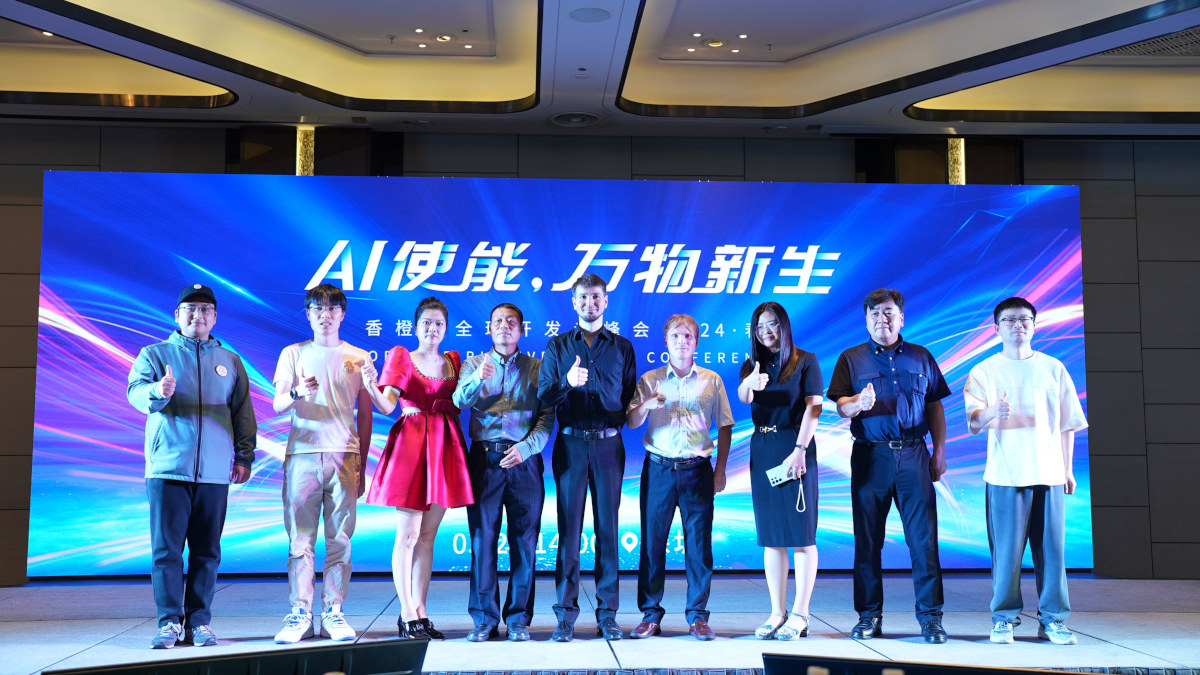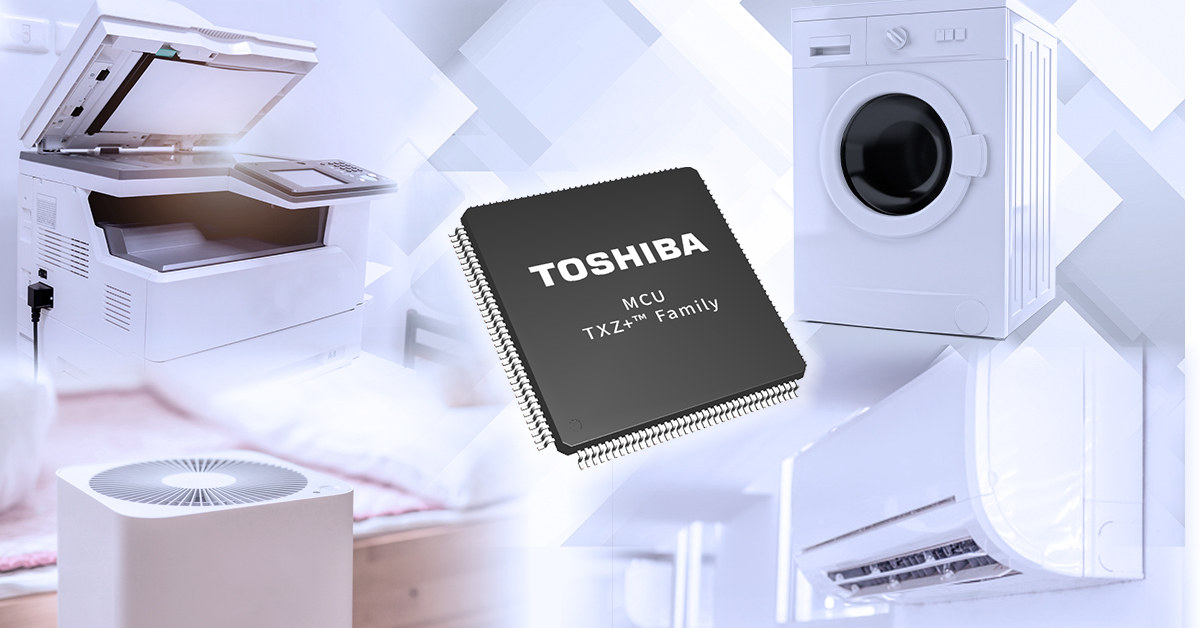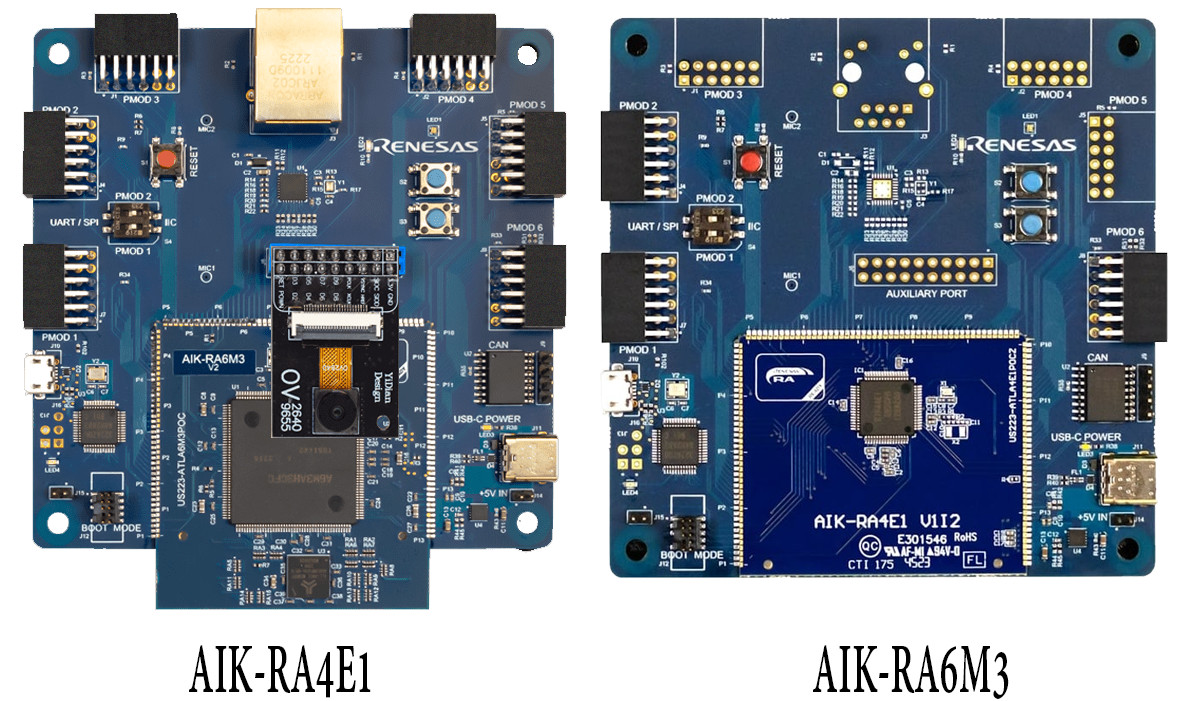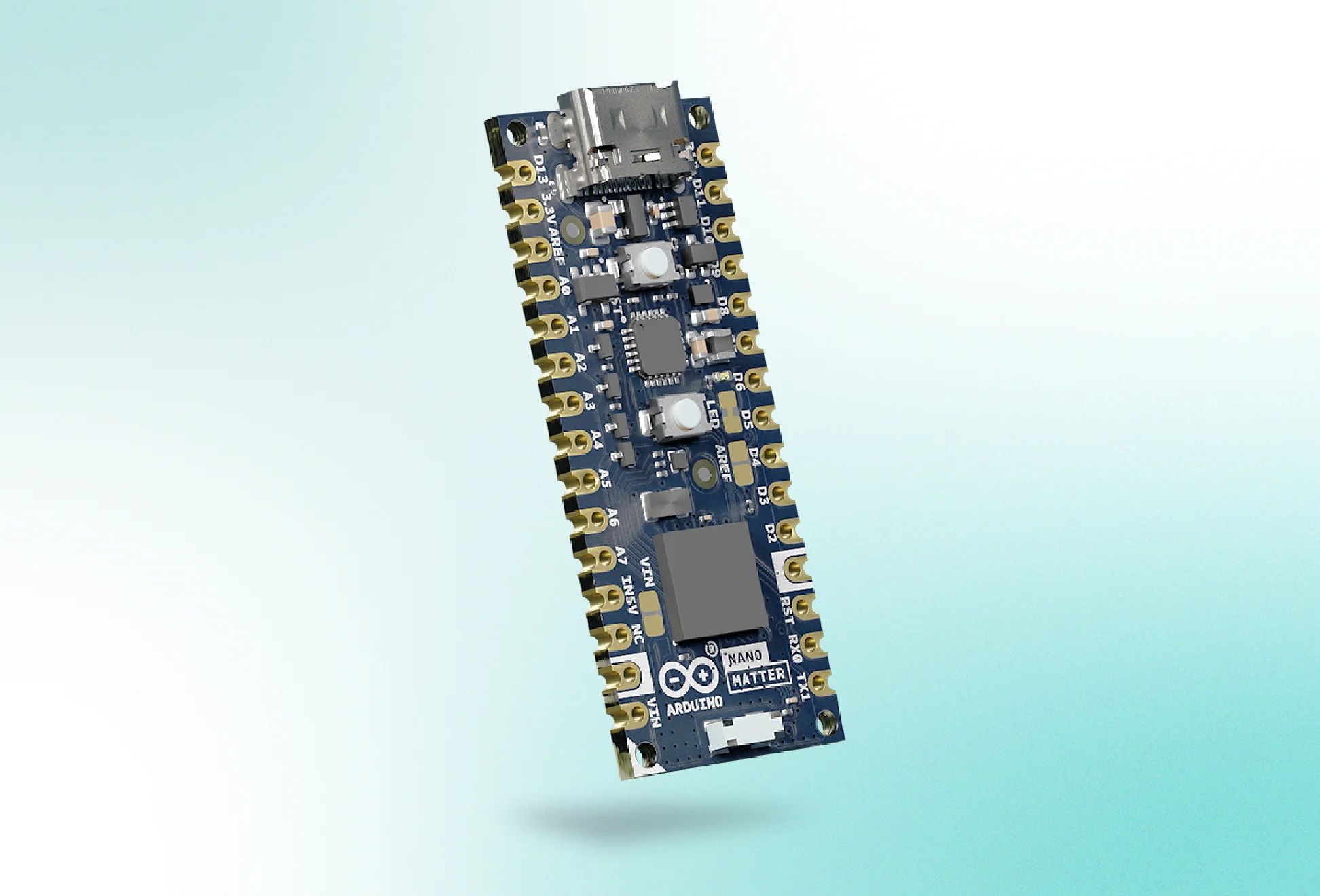Modular IoT hardware developer, M5Stack, has released a new programmable robot base based on the STM32F030F4 microcontroller with LEGO and Arduino compatibility. The M5Stack BugC2 is “compatible with the M5StickC series controllers,” and includes the ESP32-powered M5StickC Plus2 development kit in the package. It features an L9110S four-way motor driver for all-directional operation, two programmable RGB LEDs, an infrared encoder, and a 16340 rechargeable Li-ion battery holder. It also comes with a USB Type-C port for charging the battery and supports onboard reverse charging protection and voltage detection. Listed applications for the M5Stack BugC2 programmable robot base include remote motor control, robot control, and an intelligent toy. M5Stack BugC2 specifications: Microcontroller – STMicroelectronics STM32F030F4 microcontroller, with Arm 32-bit Cortex-M0 CPU @ 48 MHz, and with up to 256KB of flash memory Motor driver – L9110S Infrared receiver – SL0038GD IR detection distance (StickC Plus2) Infrared emission distance (linear distance) at […]
Avaota A1 open-source hardware SBC is powered by Allwinner T527 octa-core Cortex-A55 SoC
We’ve recently covered MYiR Tech MYD-LT527 industrial development board based on Allwinner T527 octa-core Cortex-A55 AI SoC and noted Orange Pi is working on one that should even get mainline Linux support. The Avaoto A1 offers another Allwinner T527 hardware option with an SBC design that’s fully open-source. The board is equipped with up to 4GB RAM, 128GB eMMC flash, HDMI and DisplayPort video outputs, two gigabit Ethernet ports, a WiFi 6 and Bluetooth 5.4 module, a few USB ports, a 3.5mm audio jack and the usual 40-pin GPIO header for expansion. Avaota A1 specifications: SoC – Allwinner T527 (or Allwinner A527 with Avaota A1C board, not sure what the differences are between the two) CPU Octa-core Arm Cortex-A55 processor with four cores @ 1.80 GHz and four cores @ 1.42GHz XuanTie E906 RISC-V core up to 200 MHz GPU – Arm Mali-G57 MC1 GPU with support for OpenGL ES […]
SolidRun launches Hailo-15 SOM with up to 20 TOPS AI vision processor
In March last year, we saw Hailo introduce their quad-core Cortex-A53-based Hailo-15 AI Vision processor. The processor features an advanced computer vision engine and can deliver up to 20 TOPS of processing power. However, after that initial release, we didn’t find it in any commercial products with the SoC. But in a recent development, SolidRun has released a SOM that not only features the Hailo-15 SoC but also integrates up to 8GB LPDDR4 RAM and 256GB eMMC storage along with dual camera support with H.265/4 Video Encoder. This is not the first SOM that SolidRun has released. Previously, we wrote about the SolidRun RZ/G2LC SOM, and before that, SolidRun launched the LX2-Lite SOM along with the ClearFog LX2-Lite dev board. Last month, they released their first COM Express module based on the Ryzen V3000 Series APU. Specification of SolidRun’s Hailo-15 SOM: SoC – Hailo-15 with 4 x Cortex A53 @ 1.3GHz; […]
Nuvoton launches M433 Series ultra-low power Arm Cortex-M4F MCUs, NuMaker-M433SE development board
Nuvoton has recently announced their M433 Series MCUs (M433LE8AE and M433SE8AE) along with the NuMaker-M433SE development board. Nuvoton is calling this the “M433 CAN/USB FS OTG” Series, featuring an Arm Cortex-M4F core with DSP and FPU extensions. The MCU is clocked at 144 MHz and consumes 350 nA in deep power-down mode, making it ideal for battery-operated IoT, industrial, and consumer applications. This is not the first Nuvoton MCU we have written about. In recent months, we have seen Nuvoton release the NuMicro M091 Series, the Nuvoton MA35H0 – a cost-optimized MPU, and other dev boards and MCUs. Feel free to check those out if you are interested in the topic. Nuvoton M433 Series MCUs specifications: MCU core 144 MHz Arm Cortex-M4F Includes DSP and FPU instructions Memory Protection Unit (MPU) with 8 regions Memory Up to 128 KB Flash 4 KB LDROM Up to 64 KB SRAM with parity […]
Orange Pi Developer Conference 2024, upcoming Orange Pi SBCs and products
Orange Pi held a Developer Conference on March 24, 2024, in Shenzhen, China, and while I could not make it, the company provided photos of the event where people discussed upcoming boards and products, as well as software support for the Orange Pi SBCs. So I’ll go through some of the photos to check out what was discussed and what’s coming. While Orange Pi is mostly known for its development boards the company has also been working on consumer products including the Orange Health Watch D Pro and the OrangePi Neo handheld console. The Orange Pi Watch D Pro is said to implement non-invasive blood glucose monitoring, blood pressure monitoring, one-click “micro-physical examination” and other functions to to help users monitor their health monitoring. The Watch D Pro uses a technique that emits a green light to measure glucose levels in the blood, and we’re told it’s accurate enough to […]
Toshiba M4K Group microcontrollers for motor control get expanded flash & memory capacity
Toshiba has included eight new products with 512KB/1MB flash storage capacity and four packages in its M4K Group of Arm Cortex-M4-powered microcontrollers. The M4K Group is part of Toshiba’s TXZ+ Family Advanced Class, consisting of five groups of low-power, high-performance 32-bit microcontrollers. The new microcontrollers expand code flash memory to 512KB/1MB from the 256KB maximum supported by current products, and RAM capacity to 64KB from 24KB. They retain the Arm Cortex-M4 core, integrated code flash, and 32KB data flash memory (with 100K program/erase cycles). With different motor control options such as advanced programmable motor circuits, advanced 32-bit encoders, advanced vector engine plus, and three units of high-speed, high-resolution 12-bit analog/digital converters, these class of microcontrollers are quite capable of 3-motor control, even in small scale applications (64-pin). The new products with 1MB code flash separate the memory into two distinct 512KB areas, enabling memory swap and seamless over-the-air firmware updates, […]
Renesas AIK-RA4E1 and AIK-RA6M3 reference kits are designed for accelerated AI/ML development
Renesas AIK-RA4E1 and AIK-RA6M3 are two new development boards based on RA-series 32-bit microcontrollers. These new dev boards have multiple reconfigurable connectivity functions to accelerate AI and ML design and development time. Both boards appear similar, but the AIK-RA4E1 uses the R7FA4E110D2CFM MCU, features three Pmod ports, and has no Ethernet support. On the other hand, the AIK-RA6M3 utilizes the R7FA6M3AH3CFC MCU, has six Pmod ports, and includes Ethernet support. Both the boards support full-speed USB and CAN bus. Renesas AIK-RA4E1 and AIK-RA6M3 reference kits specifications (Consolidated): RA4E1 Microcontroller Features: Model: R7FA4E110D2CFM Package: 64-pin LQFP Core: 100 MHz Arm Cortex-M33 SRAM: 128 KB on-chip Code Flash Memory: 512 MB on-chip Data Flash Memory: 8 KB on-chip RA6M3 Microcontroller Features: Model: R7FA6M3AH3CFC Package: 176-pin LQFP Core: 120 MHz Arm Cortex-M4 with FPU SRAM: 640 KB on-chip Code Flash Memory: 2 MB on-chip Data Flash Memory: 64 KB on-chip Connectivity: One USB […]
Arduino Nano Matter board specifications and price announced
The Arduino Nano Matter is the product of a collaboration between Arduino and Silicon Labs. The Nano Matter board was announced in January and is powered by SiLabs’ MGM240S chip. It offers multiple wireless connectivity options such as Matter, OpenThread, and Bluetooth Low Energy. Support for the Matter standard is the Nano Matter board’s key offering. Matter is an open-source, connectivity protocol that lets smart home devices from different manufacturers interoperate seamlessly. The 45mm x 18mm board leverages dual-mode connectivity, with IEEE 802.15.4 (Thread) for mesh networking and Bluetooth Low Energy for short-range communication. It is targeted at the Internet of Things, home automation, professional automation, environmental monitoring, and climate control applications. Prospective industrial applications include machine-to-machine interoperability, machine status monitoring, and worker status optimization. Arduino Nano Matter specs: MPU – SiLabs MGM240SD22VNA MCU core – 32-bit Arm Cortex-M33 with DSP (digital signal processing) instruction and FPU (floating-point unit) @ […]


